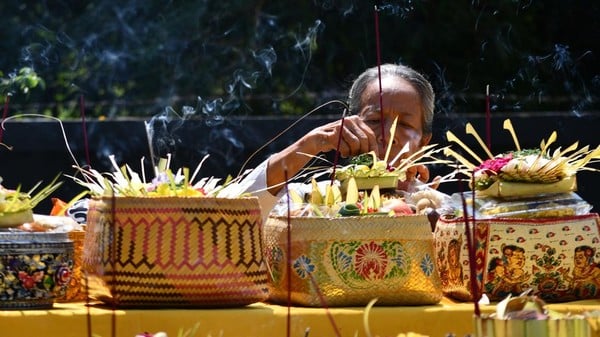Bali, known for its rich cultural tapestry and vibrant traditions, offers a unique experience for foreign tourists. One such cultural gem is Siwaratri Day, a sacred Balinese Hindu celebration. In this comprehensive guide, we’ll unravel the significance of Siwaratri Day and provide you with practical tips to immerse yourself in the spiritual essence of this cultural event.
Understanding Siwaratri Day
Siwaratri Day, also known as the Night of Siwa, is a special day in the Balinese Pawukon calendar, dedicated to Lord Shiva. Falling on the new moon night, it marks a moment of introspection, meditation, and spiritual rejuvenation. The island comes alive with unique ceremonies and rituals that showcase Bali’s deep-rooted cultural and religious practices.
Siwaratri Day occurs every 15 days in the Pawukon calendar. However, the grandest celebrations take place on the eve of the new moon. Tourists can witness these festivities at major temples across Bali, with notable events happening in Besakih Temple, Uluwatu Temple, and Tirta Empul Temple.
Siwaratri Day Stories: The Tale of Lubdaka

Integral to Siwaratri is the story of Lubdaka, a family man who earned a living by hunting in the forest. One day, during a challenging hunt, Lubdaka found solace near a serene pond. Unbeknownst to him, it was Siwaratri night, a time when Lord Shiva engaged in yoga.
Lubdaka was a family head who provided for his family by hunting animals in the forest. One day, he went deep into the woods for a hunting expedition.
However, that day seemed different from the usual. As evening approached, Lubdaka couldn’t find his target prey. Unaware that day turned into night, Lubdaka continued his struggle for a successful hunt in the heart of the forest.
Eventually, Lubdaka decided to take a moment of rest under an old and sturdy bila tree by the tranquil lakeside. To avoid falling asleep, he plucked one leaf at a time from the bila tree and dropped them below.
One of the bila leaves touched the Lingga, a symbol of worship for Lord Shiva, below it. Unbeknownst to Lubdaka, that night was Siwaratri, where Lord Shiva was engaged in yoga.
In that moment, Lubdaka regretted all the evil deeds he had committed throughout his life. From the top of the bila tree, he vowed to cease being a hunter.
Since then, Lubdaka switched professions, becoming a farmer. However, the new occupation didn’t provide much activity, and his body began to stiffen and ache. Eventually, Lubdaka passed away.
Observance of Siwaratri Day in Bali

Siwaratri Day in Bali is celebrated with unique traditions varying across regions. Commencing with morning prayers, some individuals observe monabrata, maintaining silence and refraining from speaking for the day. Others choose to fast throughout the day.
The observance spans 12 hours from 6:00 AM to 6:00 PM, followed by mejagra, a night-long vigil where Hindus abstain from sleep until 6:00 AM the next day. This practice symbolizes heightened awareness, urging individuals to reflect on their lives.
As Dewa Siwa performs Yoga Samadhi on Siwaratri, praying for the universe, it becomes a propitious moment for devotees to prostrate and seek Lord Shiva’s blessings.














Add a comment